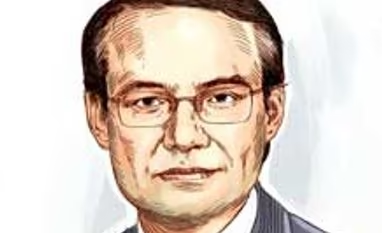"We are aiming to raise a billion-dollar Asia Growth fund. It will be equity-growth equity. It is for Asia as a whole. But a big part of that will be India. For IFC, India is the biggest country in terms of existing exposure," said Wilson.
IFC AMC has a unique co-investment strategy, under which it raises the funds from third-party investors such as pension funds and sovereign wealth funds and invests in projects funded by IFC. While IFC invested $1.2 billion in 39 projects last year, its subsidiary, which operates like a typical private equity fund, is yet to make its first investment in India.
Also Read
The new fund will be cross-sectoral and will look at investments in the range of $25-35 million among IFC projects in India. Wilson, who was in Delhi recently for the India Economic Summit organised by the World Economic Forum, said he was encouraged by the buzz around infrastructure projects and public-private-partnerships that have gained momentum after the new government took over.
IFC AMC is close to making investments under its infrastructure fund it had closed last year, he added. "From what I have seen, this is clearly a government with a reform programme, a government with a focus on execution. There is a project management mentality, which goes beyond policy making. That is good news. It is not unique to India but it suggests that a lot of these projects will actually happen. That's good."
Explaining the fund house's strategy for infrastructure investments, Wilson said, "We are willing to take construction risk. So, most of what we do is greenfield. There is heightened risk, but it tends to be high returns. We have particular expertise in evaluating construction risks. I use construction risks broadly to involve everything between financial closure and project becoming operational. Our average holding period is five-to-seven years, unlike infrastructure funds that will buy an asset that already exists and more of a inflation hedge, sort of income-generating asset you might hold for 20-25 years. We are much more into development of infrastructure," he said.
He emphasised the fund house's focus on greenfield projects was very much in line with India's need to build new infrastructure. Wilson calls IFC AMC a double bottom line investor like its parent, looking everything that it invests should be profitable and also good for development with a focus on high environment, social and governance standards.
"We look at IFC projects. It has already gone through the appraisal process of IFC. On behalf of our external investors, we invest in the subset of these projects, which suits the objective of funds we are managing. We are not duplicating what IFC has done already. This allows us to focus on valuation, structuring, exits and shareholder agreements," Wilson noted.
As of June 2014, IFC AMC had $6.3 billion worth of assets under management in six funds and had committed $3.8 billion in 53 emerging market companies and four private equity funds. "When we raise funds, it is for a particular sector or geography. If we are a sector fund, we invest in different regions and if it's a region fund, we invest in different sectors as we believe strongly in diversification," Wilson added.
One of the key risks Wilson sees as an investor in India is the global economic health. "I would say global economic health is clearly something governments can't control. Growth is slow or slowing in many parts of the globe. That is a risk." However, he said the AMC's investments would be guided more by the intrinsic merits of the company than by the macro picture. "We will go project by project. We are not going to be cold on a country based on the macro picture. We are less worried about that than the intrinsic merits of the company we are investing in."
)